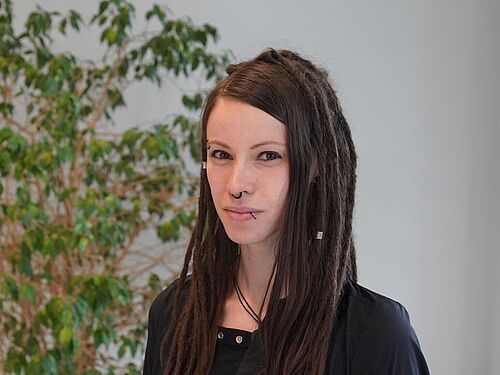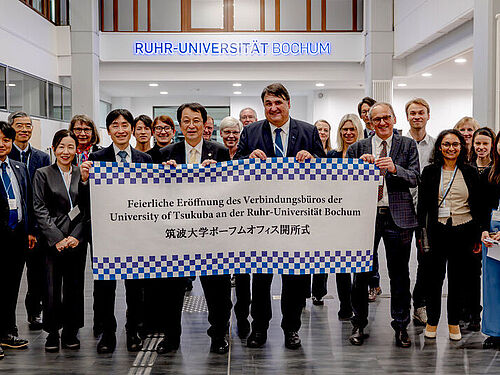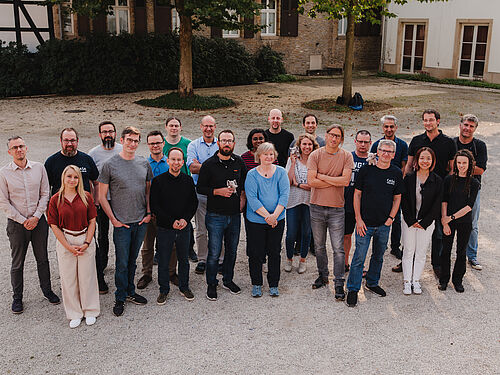About Karola Marky
Karola has been appointed as a professor for Digital Sovereignty at the Horst-Görtz-Institute for IT Security, Faculty of Computer Science at Ruhr University Bochum, Germany, in December 2022 and is a Principal Investigator (PI) at our Cluster of Excellence CASA – Cyber Security in the Age of Large-Scale Adversaries. She heads the research group "Digital Sovereignty Lab", where her focus lies in understanding the psychological aspects of people's behavior and developing interfaces that respect human psychology. Her goals are raising awareness on manipulative designs in the digital realm and developing mechanisms that safeguard individuals from it. She intends to explore more realistic scenarios of IT security and privacy mechanism usage employing innovative methods, including virtual reality. Through a creative approach, she aims to personalize and make IT security more accessible. Within our cluster, her research belongs to our Research Hub D "Usability", which investigates the unique role of the user in the context of IT security and privacy.
One Year at the Research Location Bochum
In this brief interview, she shares her reasons for coming to Bochum, details about her research, and highlights special experiences and challenges:
- Dear Karo, why did you choose Bochum as a research location?
Bochum offers an excellent environment for cybersecurity research covering all relevant aspects from theoretical basics to specific use cases. Notably, research closely aligned with my own was already well-established in Bochum. This presented the ideal setting to develop and grow my research lab.
- Which research question drives you on a daily basis?
The question that concerns me the most is: How can we make security and privacy more practical and fun for the general population? For instance, we all use two-factor authentication for banking in the EU. It is time-consuming, and typing numbers and passwords is error-prone and boring. Therefore, we developed 3D-printed two-factor authentication items that gamify the login process.
- Which research project fascinated you the most in the past year and why?
The research project DigiFit, where we explored ways to support citizens in cultivating secure habits. As part of the project, we conducted a survey among school students (aged 13 to 18) to gain insights into their perceptions of privacy and cybersecurity. While the results are still pending, I was scared by the responses from this younger generation, which has essentially grown up with smartphones. I think we are very naive to think that everyone in the younger generation is a digital native. Teens know well how to use smartphones, social networks and so on, but over 80 percent of our study participants used devices designed for adults in an un-regulated way. They are unaware of the long-term effects of screen usage, data sharing, and all the manipulative designs they are exposed to every day.
- What was your biggest challenge during your first twelve months here, and how did you overcome it?
The biggest challenge I faced was building a strong team. I don't think this challenge is something that professors ever overcome. Due to the "Zeitarbeitsgesetz" (temporary employment law), we are required to hire new people at some point, regardless of the circumstances. However, my mentors at Ruhr University Bochum and other senior researchers have been instrumental in supporting me. They have shared their experiences and provided valuable feedback, which I believe is crucial in navigating challenges. Seeking advice and assistance is essential in overcoming such hurdles.
- What unexpected, funny, or curious experiences have you had in your first year here that have stayed in your memory?
I was invited to the opening of the liaison office of the University of Tsukuba at Ruhr University Bochum due to my connections to Japan. Since 2019, Tsukuba has been Bochum’s Japanese partner city, and at the event, the leader of the delegation had a scarf of the German soccer club “VfL Bochum”. He expressed interest in watching a game with our rector, Martin Paul, if I remember correctly. It was a humorous and peculiar experience, highlighting that fostering international research collaborations can extend to unexpected connections through soccer. Another one was visiting Dagstuhl, the “computer science castle”. It has a pretty music room with a grand piano. I was pleasantly surprised how many researchers who play musical instruments. At CASA, I think we could form a band.
Thank you, Karo, for sharing insights from your first year with us! We greatly appreciate your valuable contribution to our research community.
More interviews of this series: https://casa.rub.de/en/news/casa/news/one-year-at-casa-yixin-zous-research-experience-in-bochum
General note: In case of using gender-assigning attributes we include all those who consider themselves in this gender regardless of their own biological sex.





